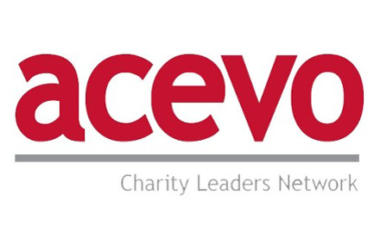Some parts of the charity sector are elitist, but this is partly because the rest of society is elitist, the director of Class said at a Labour Party Conference fringe event hosted by Acevo yesterday.
The session was looking at the question ‘Are modern charities elitist?’, and included a panel of sector representatives and MPs. Faiza Shaheen, director of the Centre for Labour and Social Studies (Class), said that she herself had had bad experiences of elitism in charities.
She said: “When there isn’t representation at the top of people who didn’t go to private school, and who are from a more diverse background, then that affects the way that charities run, where there priorities are set, and the way they see their beneficiaries.
"The amount of time I have worked with people that literally do not know anyone on benefits, who do not ‘have any black friends’, and who have no idea about the agency they have. So the way they talk about things, and set their programmes is unfortunately in a very top-down way.”
But, she said, we can’t necessarily blame charities for this elitist attitude, as they only mirror the rest of society.
She said: “Charities are elite because society is elite. Charities are often the best of society, but they are not separate to them. They are not separate to the way the economy operates. If you have a situation where almost three-quarters of judges in this country went to private school, more than half of journalists went to private school, then what do you expect at some of our biggest charities? Of course, it is just going to reflect back.”
Speaking from the audience, Javid Khan, chief executive of Barnardo’s, said: “If there is any elitism than I think Faiza’s point is a really important one, and we are in very good company. We are the best of a very bad bunch in society because we are asking ourselves some very serious questions, and we mustn’t lose that point. Because if we start bashing charities, then me and the very many others are going to wonder why we even bother. Because we can do very many things in society and deploy our skills.”
Why ask the question?
Wes Streeting, Labour MP for Ilford North, questioned why Acevo was hosting the event. He said that when he was first asked to sit on the panel, he thought it was very “counter-intuitive”, and questioned why Acevo was “indulging in the beating-up of the sector that is already far too prevalent” in Westminster.
Echoing comments he had made at last year’s Labour Party Conference, Streeting said he was “sick and tired of the Tory MPs that have a Victorian philanthropic vision of charities - who don’t want to hear the voice of the voluntary sector, except when they are at the Conservative Party Conference when they want the cuddly picture with the Guide Dogs. Or they want to go to a nice event locally with one of the children’s charities and have a photo at the hospice fundraising fate or another community group – but don’t want to hear the voluntary sector’s voice.”
He went on to say that the way in which the government has “clamped down on the voice of the charity sector, tells me that actually modern charities are very good at making sure that the voice is an experience of some of the most marginalised and disadvantaged in our society”.
Streeting said that this is why, in the context of cuts, the “Tories wanted to choke off that voice, and basically think there should be no role for charities walking down the corridors of power to tell us that maybe decisions we are making are hitting some of the most vulnerable people the hardest. So I thought I’d come along and have a go at Acevo.”
But, he admitted that when thinking about it in more detail, there were questions that needed to be asked of the sector.
He spoke of the “tax breaks and tax advantages that are rightly offered to genuine charities but are being exploited by organisations” that he doesn’t feel have sufficiently charitable aims and purposes. He mentioned “companies that set up charitable vehicles with fluffy aims and objectives, but are actually just about minimising their tax liabilities”.
Charitable status of independent schools should be ‘taken away’
He was also heavily critical of independent schools “that have a charitable status that they don’t warrant or deserve”.
He added: “They can sponsor as many academies as they like, but as long as they are still only taking people that can afford to gain access to your very elite education, you do not have, in my view, a charitable purpose and that should be taken away."
Streeting concluded: “Yes, there are some challenges, and there are some risks of elitism, and there are some organisations that are definitely elitist. But let’s encourage the sector to be better while challenging the breadth, the diversity, and the strength of our fantastic voluntary sector.”









